Are you struggling to generate leads for your eCommerce business? Want to learn how to get more leads and increase your online sales?
If you’re running an online business, eCommerce lead generation is a crucial part of creating a steady flow of revenue. That’s because one of the secrets to getting more sales is to get more leads. After all, today’s leads are tomorrow’s customers.
However, given the growing competition in the eCommerce domain, it’s not easy to generate leads for your website.
The good news is that you can generate a steady stream of new leads for your eCommerce store if you have the right set of ideas and tools at your disposal.
In this post, I’ve collected the best eCommerce lead generation tips that you can apply on your website to turn it into a lead generation machine.
Before we get into the strategies for generating eCommerce leads, let’s discuss what a lead is, and how you work out who your leads are.
If you are already familiar with these concepts, feel free to skip ahead to the next section.
What is a Lead?
In marketing, a lead is someone interested in your products or services. They might show their interest in buying from you through specific actions on your site. For example, eCommerce website leads might:
- Click on your online ads.
- Visit your website or product pages.
- Interact with your live chat widget.
- Create an account with your website.
- Subscribe to your blog or newsletter.
- Download your lead magnet content.
- Follow your brand on social media platforms.
As with all other forms of marketing, eCommerce lead generation strategies rely on knowing who your audience is and where to find them. Let’s look at that in the next section.
Who Are Your Leads?
Figuring out who your leads are is a 2-step process. First, you need to find out who you want to attract and define the customer avatars or your buyer personas.
Customer avatars include demographic information of your leads, such as:
- Age and gender.
- Education and income.
- Challenges and pain points.
- Information sources.
- Location.
- Interests.
The more accurately you describe your buyer persona, the more likely that you’ll create high-quality campaigns that resonate with your target audience.
The second part of lead generation for eCommerce is to figure out where your ideal customers hang out online. This will help you finetune your marketing campaigns and maximize your return on investment (ROI).
You can use a tool like Google Analytics to understand your existing web traffic, how well your visitors are converting, and where they are coming from.
For instance, social media networks are an important source of referral traffic for many eCommerce brands.
Once you know which specific social media platform is working best for your brand, you can dive deeper into your social analytics to learn more about your potential leads.
When you know where your customers are coming from, you can focus your marketing efforts on that specific channel to generate new leads that convert.
Ready to learn about the best eCommerce lead generation ideas? Use this table of contents to jump to the eCommerce lead generation tip you’d like to use first.
- Set Up An Email List
- Design an Optin For Your Email List
- Create Lead Magnets
- Use Exit-Intent® Popups
- Offer Discounts and Promotions
- Create Limited-Time Offers
- Optimize Your Call to Action
- Use SEO to Drive More Web Traffic
- Leverage Gated Content
- Personalize Your Campaigns for Returning Visitors
- Use Live Chat to Nurture Leads
- Optimize Your Site For Mobile Conversions
- Generate Leads With Guest Blogging
- Turn Social Followers Into Leads
1. Set Up An Email List
Setting up an email list is a great way to improve your eCommerce lead generation. That’s because email marketing is one of the most effective ways to communicate with and nurture leads.
The latest email marketing stats show that people still read email and enjoy getting emails from the businesses they connect with. Emailing prospects a few times a week can be a great way to keep leads coming in.
You can leverage emails to enrich your sales funnel by promoting discount coupons, limited-time offers, or flash sales on your eCommerce business.
To run an email campaign successfully, you’ll need a reliable email marketing automation tool.
If you’re looking for a good email service provider (ESP) to manage your email marketing, check out Constant Contact.
The platform is great for beginners and savvy marketers alike. Unlike some other ESPs, Constant Contact scales with your growing needs and lets you manage big lists.
2. Design an Optin For Your Email List
Once you set up an email list, you’ll need to grow your subscriber base to maximize your revenue potential. For this, you’ll need to set up an optin campaign that lets your site visitors sign up for your emails.
An ESP is useful to collect leads, automate marketing emails, and track conversions. But it’s not always the best tool to attract more subscribers to your email list.
Sure, Constant Contact has plenty of sign-up forms that you can use on your site. But they aren’t as exhaustive or customizable as optin forms that you can create with OptinMonster.
With OptinMonster, you can:
- Use its drag-and-drop campaign builder to easily design forms to match your company’s brand.
- Use smart targeting to show the right campaign to the right person at the right time on the right device.
- Customize the ‘success’ pages to offer instant gratification to your new subscribers.
- Utilize Field Mapping to capture detailed lead information so that you can make sure your leads are qualified.
Here’s an example of a simple optin campaign created with OptinMonster:
Want to learn more about getting more email subscribers? Read our guide on Proven Ways to Grow Your Email List.
3. Create Lead Magnets
A lead magnet is a valuable freebie that you give your customers in exchange for their email addresses. A lead magnet can be a guide, checklist, or ebook about a topic that interests your potential buyers.
The best lead magnets are simple and easy to understand. They solve a problem for the readers and make people want to know more about your brand or buy from you.
Generating leads for your eCommerce site is easy if you have the perfect lead magnets. And Beacon is one of the best lead magnet tools that can help you do exactly that. Beacon is a user-friendly tool that offers 3 products to help you acquire more customers:
- Lead Magnet Creator to create ebooks, checklists, or workbooks without hiring an expensive designer.
- Lead Capture Forms to build highly customizable lead generation forms on your best-performing landing pages.
- Free Resource Library to create a library of gated content without any technical setup.
Not sure about what lead magnet ideas to offer? Check out our guide on 63 Lead Magnet Examples That Won Thousands of Subscribers.
If you want to learn how to create the perfect lead magnet for your business, read our step-by-step tutorial on how to create a lead magnet (with examples).
4. Use Exit-Intent® Popups
Shopping cart abandonment is a big problem for most eCommerce brands. Here are a few statistics that highlight this challenge:
- The average cart abandonment rate in eCommerce is 70.19%.
- Every year, the eCommerce industry loses $260 billion in sales due to cart abandonments.
- The cart abandonment rate is highest on smaller screens, with over 85.65% of people leaving their carts behind on mobile devices.
One of the best ways to stop people from leaving your site and to convert leads to customers is by using an exit intent popup. With OptinMonster, triggering an Exit-Intent® campaign is really simple.
You just have to create a campaign of your liking, choose Exit-Intent® in the display rules, and choose which device you want it to appear on.
If you want detailed instructions on how to make the most of OptinMonster’s Exit-Intent® Technology, watch this short video:
OptinMonster’s customers have had amazing results with Exit-Intent® campaigns. Here are a few examples:
- OptimizeMyAirBnB used it to grow its email list by 650%.
- SnackNation leveraged Exit-Intent® technology to generate 1200 leads a week.
- Ryan Robinson used Exit-Intent® campaigns to increase subscribers by 500%.
- Crossrope used the Exit-Intent® popup to grow its email list by 900%.
5. Offer Discounts and Promotions
Discounts are persuasive tactics to make buyers feel like winners and increase your sales. Coupon usage data from CouponFollow shows that 96% of buyers look for promo codes before buying a product.
Discounts can be a great way to convert indecisive customers into instant buyers. Customers often struggle with buyer fatigue, a state of mental overload where people put in a lot of effort to research, find, and compare two or more products.
But when you give people an irresistible discount, many of them will breeze through the checkout process because they don’t want to miss a good opportunity.
Discounts work, and even high net-worth individuals like Bill Gates and Warren Buffet admit to using coupons to save a few bucks!
However, using discounts can be tricky since offering too many discounts and promotions can belittle your brand perception.
A better strategy would be to use discounts and coupons judiciously in your marketing. It’ll help you earn your customers’ trust and get them excited about your next offer.
OptinMonster has thought through all the problems and opportunities that eCommerce brands face in their growth.
That’s why, OptinMonster offers Coupon Marketing as one of its core features to help eCommerce sites create and offer personalized coupons to their potential buyers.
This feature lets you create optin campaigns where your customers can click a call to action (CTA) button and have the coupon code automatically copied for them.
Here’s how it looks in action:
At checkout, all they need to do is paste that code in the coupon field.
Learn more about using discount code ideas to improve conversions and increase sales.
6. Create Limited-Time Offers
When a product is about to run out or is available in limited stock, it suddenly looks more desirable to us. We want it more because that’s the way human brains are wired.
That’s why limited-time offers are an excellent opportunity to generate more leads and skyrocket your eCommerce sales.
Using urgency and the fear of missing out (FOMO) in your eCommerce lead generation strategy is a guaranteed way to generate more sales. You can use limited-time offers as a scarcity tactic to boost conversions and improve upsells.
OptinMonster’s countdown timer campaign is a great resource to help you achieve this effect.
Here’s an example from Cracku. The online coaching website for students used countdown timers on its website and increased conversions by 300%:
You can use countdown timers for your eCommerce marketing in several different ways. For instance, you can use them for:
- Holiday and seasonal campaigns.
- Limited-edition products.
- Flash sales.
For more tips on what kind of countdown timers can help you boost sales conversions, read our post on scarcity examples from real-life brands.
7. Optimize Your Call to Action
A CTA is one of the most important pieces in any digital marketing campaign. It’s how you direct visitors to take the next step. Good CTAs:
- Make the benefits of taking action clear.
- Use action words.
- Use urgency or scarcity.
- Are visually appealing.
The best CTAs inspire visitors to take action and click to take up your offer. One way to create compelling CTAs is to pair active words with urgent words.
For example, can use phrases like:
- Act Now
- Buy Today
- Get Instant Access
- Claim Your Discount Today
Another technique to improve your CTA’s appeal is to contextualize it to your offer.
For instance, if you’re offering a free lead magnet to website visitors, don’t just say ‘sign up.’ Make it more urgent by saying ‘get free access now.’
Here’s an example from Rich Page that used OptinMonster to increase conversions by 316%:
Similarly, if you have a 30-day free trial, your CTA can read ‘claim your free trial.’ It’s much better than saying ‘sign up.’
Pro-tip: Want to learn how to come up with irresistible CTAs? Read our guide on how to create the perfect call to action.
8. Use SEO to Drive More Web Traffic
Search engine optimization (SEO) is an important part of eCommerce lead generation. It helps you improve your rankings across search engines and drive the right traffic to your website.
Most people think of SEO simply as a technique to improve organic traffic. But if you optimize your content the right way, you’ll attract more potential customers to your site.
Here are a few ways to use SEO to drive more website traffic:
- Find the right search terms that people use when they’re thinking about buying. You can use one of the keyword research tools to find these search terms.
- Once you know what search terms customers are using in their queries, use the right ones in your website content, page titles, and descriptions.
- Build inbound links through guest blogging, expert interviews, and other marketing techniques to increase your site’s authority.
We’ll talk about guest blogging at length in just a bit.
Learn more about using SEO to drive traffic and generate leads in our Ultimate Guide to SEO.
9. Leverage Gated Content
Remember the concept of FOMO we talked about in an earlier section? FOMO in marketing works like a charm, even when you’re not offering discounts or coupon codes.
For example, gating your content is a powerful eCommerce lead generation strategy to generate qualified leads for your business.
Content gating is the practice of shielding a specific piece of content, such as webinars, infographics, or downloadable resources behind a subscription wall. Users can access the content only if they take a specific action, like signing up for a newsletter or creating a free account.
And it can do wonders for your conversion rates!
One of OptinMonster’s clients, Photowebo, used gated content to increase their conversions by 3806%:
Similarly, Whole Whale used OptinMonster’s Content Locking feature to boost conversions by 100%.
And Trading Strategy Guides used the same strategy to add over 11,000 subscribers in just over a month.
OptinMonster makes it easy to gate content with its Content Lock feature. For a detailed tutorial on how it can improve your lead generation efforts, go through our guide on How to Use Gated Content to Skyrocket Your Conversions.
10. Personalize Your Campaigns for Returning Visitors
Many visitors will come to your eCommerce site a couple of times before they decide to buy from you. But if you make the same offers to everyone visiting your site, your conversion rates might falter.
That’s because audiences respond differently to your offers based on their needs, their user behavior, your competition’s pricing, and their location.
To ensure that your campaigns are effective for all visitors returning to your site, you need to personalize your offers.
You can achieve this with OptinMonster’s Cookie Retargeting feature. Cookie Retargeting lets you use your site visitor’s information to improve content personalization, reclaim lost profits, and boost sales.
For instance, you can target special promotions according to your customers’ age, gender, location, and more.
Expat.com used OptinMonster’s Cookie Retargeting to promote its services to logged-in users based on what they were looking at on their website. As a result, the company got 30,000 new member registrations every month.
Here’s a look at the popup campaign they created with OptinMonster. Notice the personalization of the customer’s name and the destination they are interested in migrating in the campaign:
Want to learn more about cookie retargeting and its different use cases? Here’s our guide on How to Boost Conversions with Cookie Retargeting.
11. Use Live Chat to Nurture Leads
When visitors are on the fence about buying from your eCommerce store, using live chat can help them make up their minds.
Live chat is a powerful tool to create a smooth sales funnel. Research from Hiver shows that 63% of buyers are more likely to purchase from websites that offer live chat support.
Millennials prefer live chat over every other channel of support like email, phone, or social media.
Here are a few key benefits of live chat over email or phone:
- Lower wait times for customers to speak with a representative.
- Immediate problem resolution.
- Representatives can handle multiple customers at once.
- Representatives can also soft sell or upsell a product.
- Canned responses can save time for general/frequently asked questions.
- Co-browsing lets users show (rather than describe) their problem.
- You can capture emails at the pre-form level.
- You can acquire better data and metrics regarding customer complaints/problems.
Using live chat is a win-win for plenty of other use cases, such as handling customer questions, complaints, or general feedback.
When you use live chat software on your site, you can figure out what information visitors really want. You can use that information to guide them through their shopping and convert them into buyers.
12. Optimize Your Site For Mobile Conversions
Many of the tips we listed earlier will help you improve conversions from your eCommerce site. But there’s one area to pay special attention to for effective eCommerce lead generation: mobile.
The growing adoption of mobile among eCommerce is undeniable. Consider the following eCommerce statistics:
- 79% of buyers used their mobile devices to purchase in 2023.
- The average click-through rate (CTR) on mobile is 22.4% for search engine result #1, 13% for #2, and 10% for #3.
- Google recently confirmed that it takes a mobile-first approach to crawl and index pages in its search engine.
Taking all of these stats into consideration, it’s crucial to make sure your site is mobile-friendly and enhanced for mobile SEO.
One of the ways to improve your conversion rate optimization (CRO) on mobile is to create mobile-specific marketing campaigns.
These are templates that are responsive on mobile as well as desktop and tablets. They are also built based on web design principles to offer an improved user experience (UX).
Mobile-based campaigns are pretty effective. As an example, Salt Strong used OptinMonster to create mobile campaigns and boosted their conversions by 185%:
13. Generate Leads With Guest Blogging
Guest blogging, or guest posting, is an essential part of any content marketing strategy. It’s the practice of writing and publishing an article on websites or blogs other than your own.
A guest post is an article or piece of content that you contribute to a 3rd-party website, aimed at promoting your brand or product.
Guest blogging allows you to reach new audiences, showcase your expertise, and build inbound links to attract qualified leads.
Guest posting is a hack many brands and bloggers use in their marketing. Here are a couple of examples from brands that have benefited from it:
- Elna Cain used guest posting to make a full-time income from freelance writing.
- Buffer used guest posting to attract 100,000 customers.
To guest blog effectively, you need to:
- Find blogging sites that your target audience reads. You can use SimilarWeb to find these sites in your niche.
- Create stellar content.
- Use a CTA in your author bio to lead readers to visit your site.
- Create landing pages that deliver on their expectations.
Interested to learn more about guest blogging? Read our guide on How To Pitch and Secure Your Next Guest Blog Spot.
14. Turn Social Followers Into Leads
People who follow you on social media are already interested in what you have to offer. That’s why it’s a no-brainer to try and convert those social followers into buyers.
You can add a link to your latest campaign to your social media bio. But that’s not a very targeted way to increase sales. To get the most out of your social audience, you’ll need to run targeted pay per click (PPC) ads.
All the major social media platforms like Facebook, X.com, and LinkedIn offer a way for you to run ads and collect your audience’s contact information. That means you can target social ads specifically to the demographics and audience interests you most want to attract.
For example, fashion retailers can create different ads for men’s and women’s fashion, and for different age groups and products.
Facebook makes it particularly easy to create social ads. It’ll tell you when a particular post is doing well, and suggest you boost it:
You can also choose your audience, your ads’ duration, and your budget. After the ad is approved, Facebook will show it to the audience you’ve defined in your campaign:
Facebook also collects data on how the ad performs so that you can tweak it for better impact:
Ready to Level Up Your eCommerce Lead Generation Game?
Now you know how to generate leads for your eCommerce website, put these ideas into action and see the results that they get you.
If you liked this post, you might also be interested in the following resources:
- A 14-Point eCommerce Launch Checklist for New Store Owners
- eCommerce Best Practices: Set up Your Business for Success
- How to Get Started With eCommerce Email Marketing Automation
Want to launch a popup campaign to get more leads for your eCommerce site? Get started with OptinMonster today!

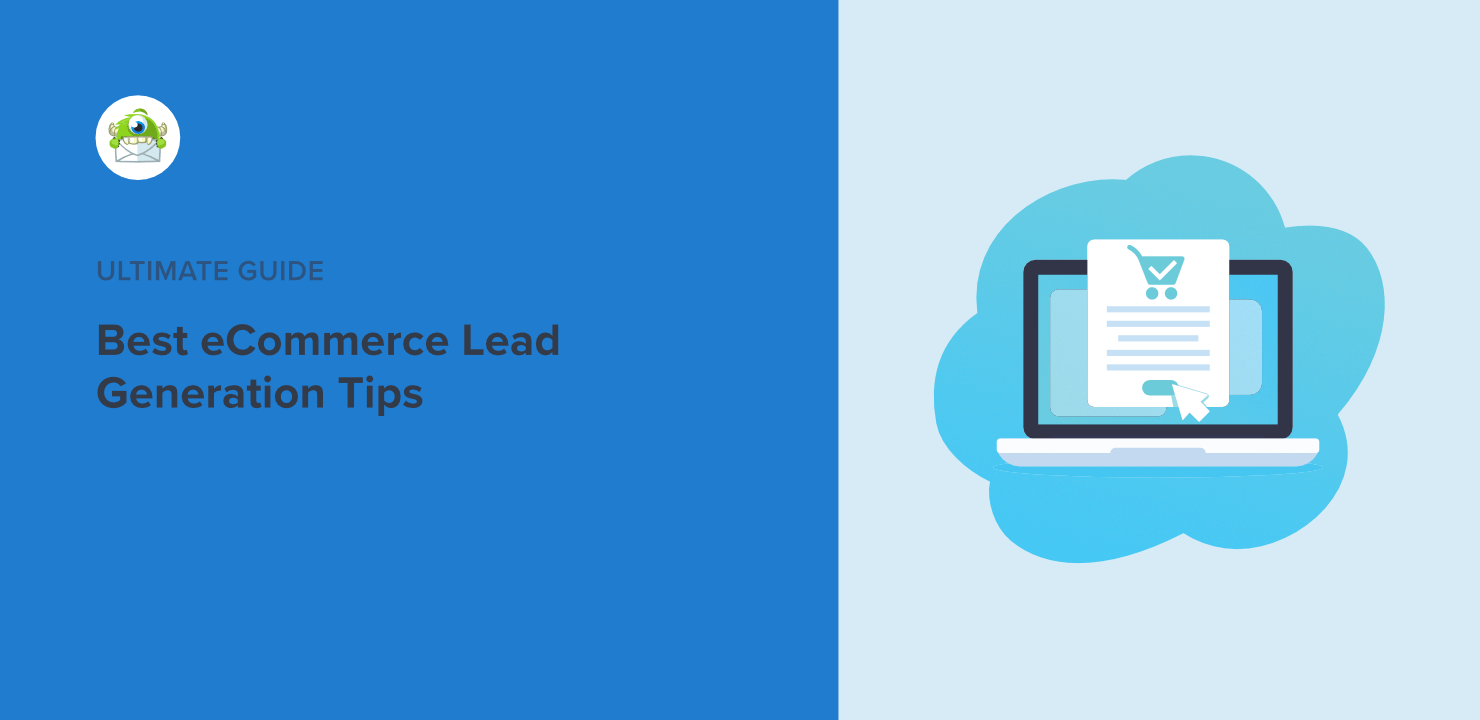
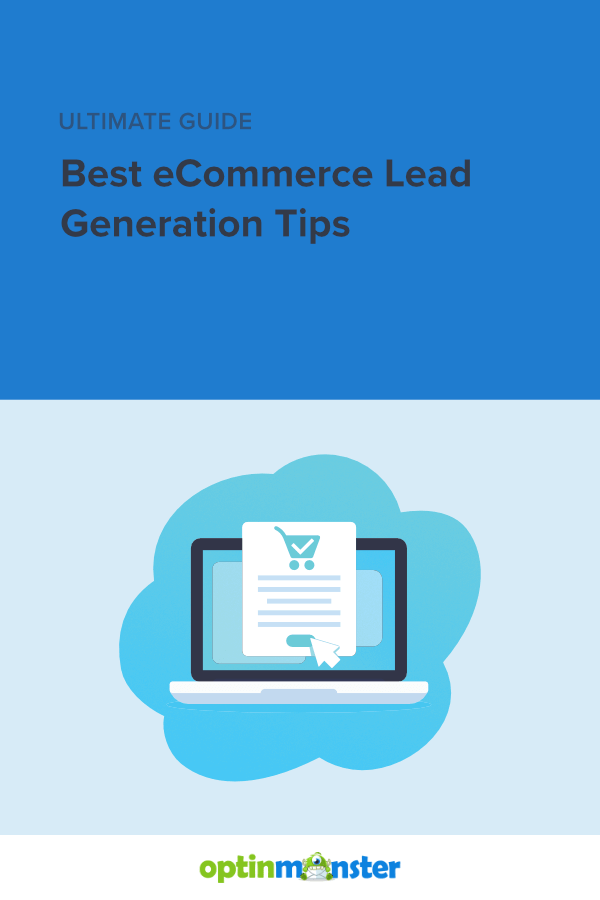
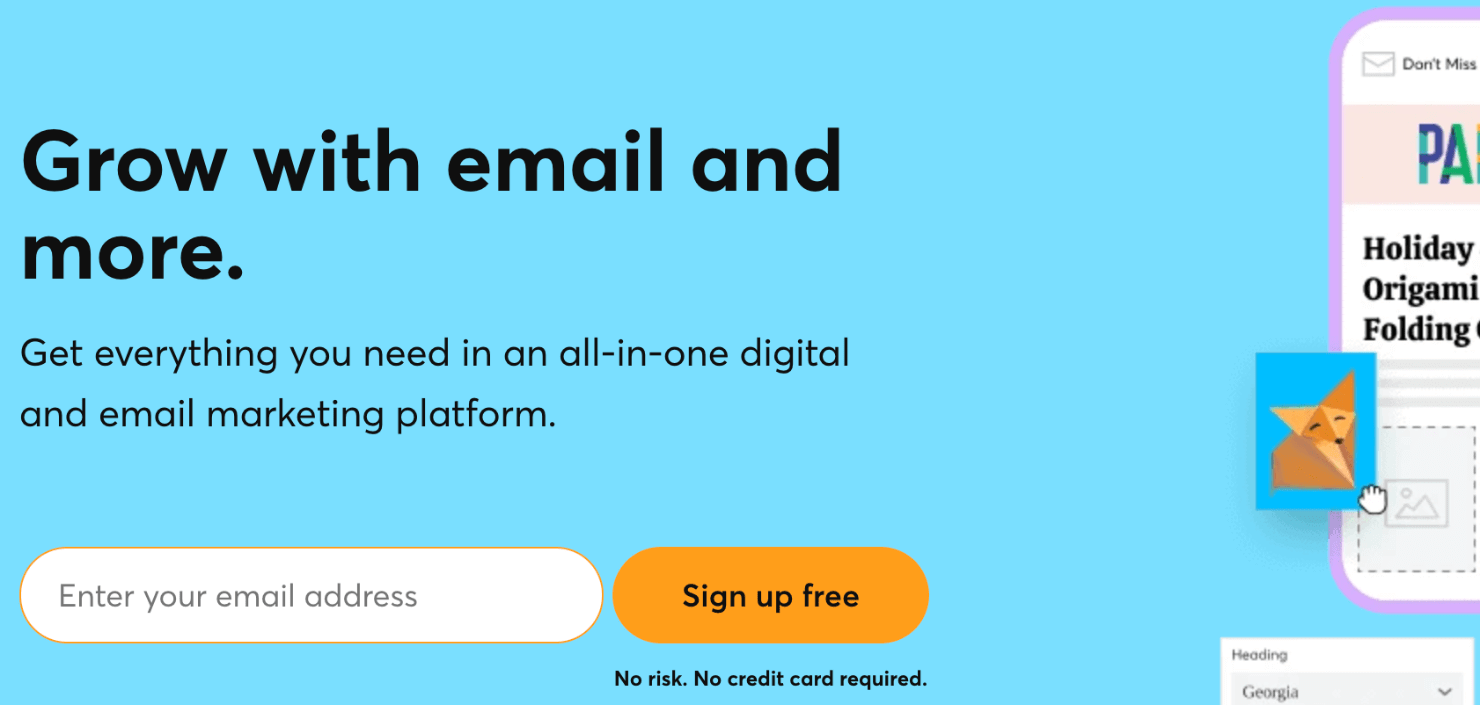
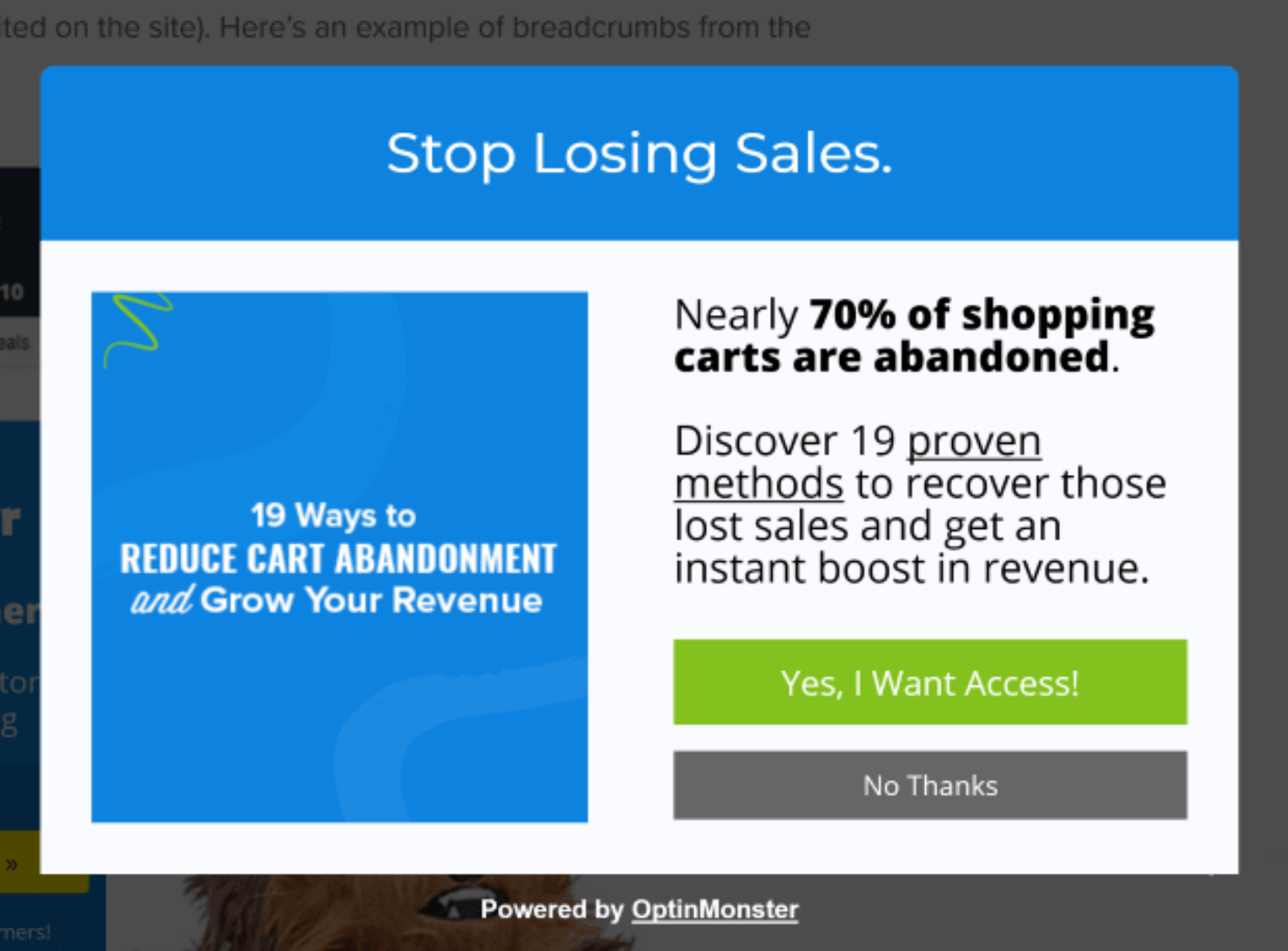
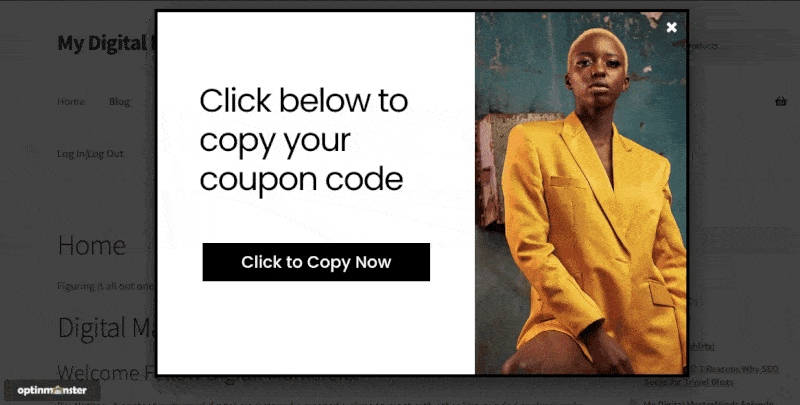
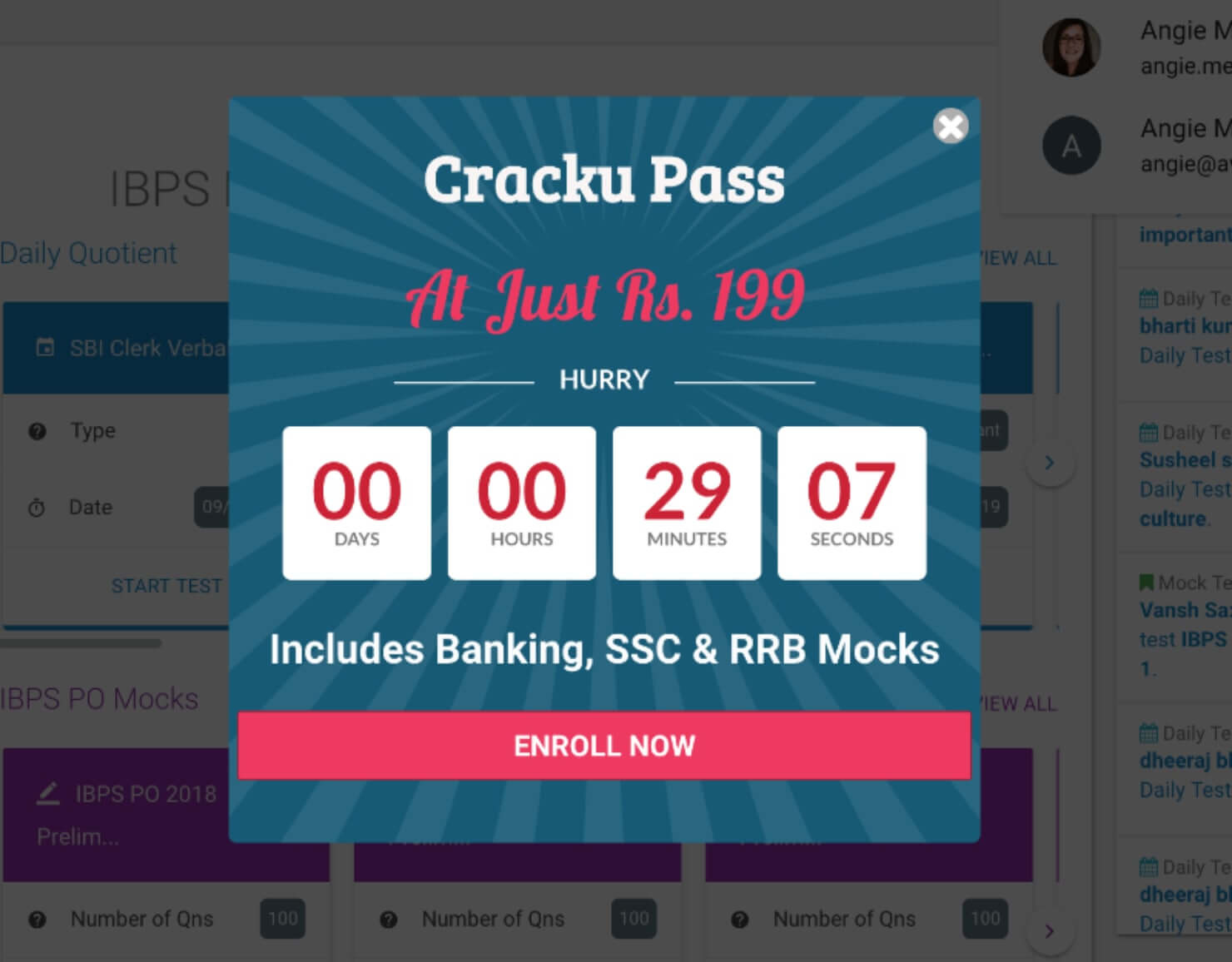
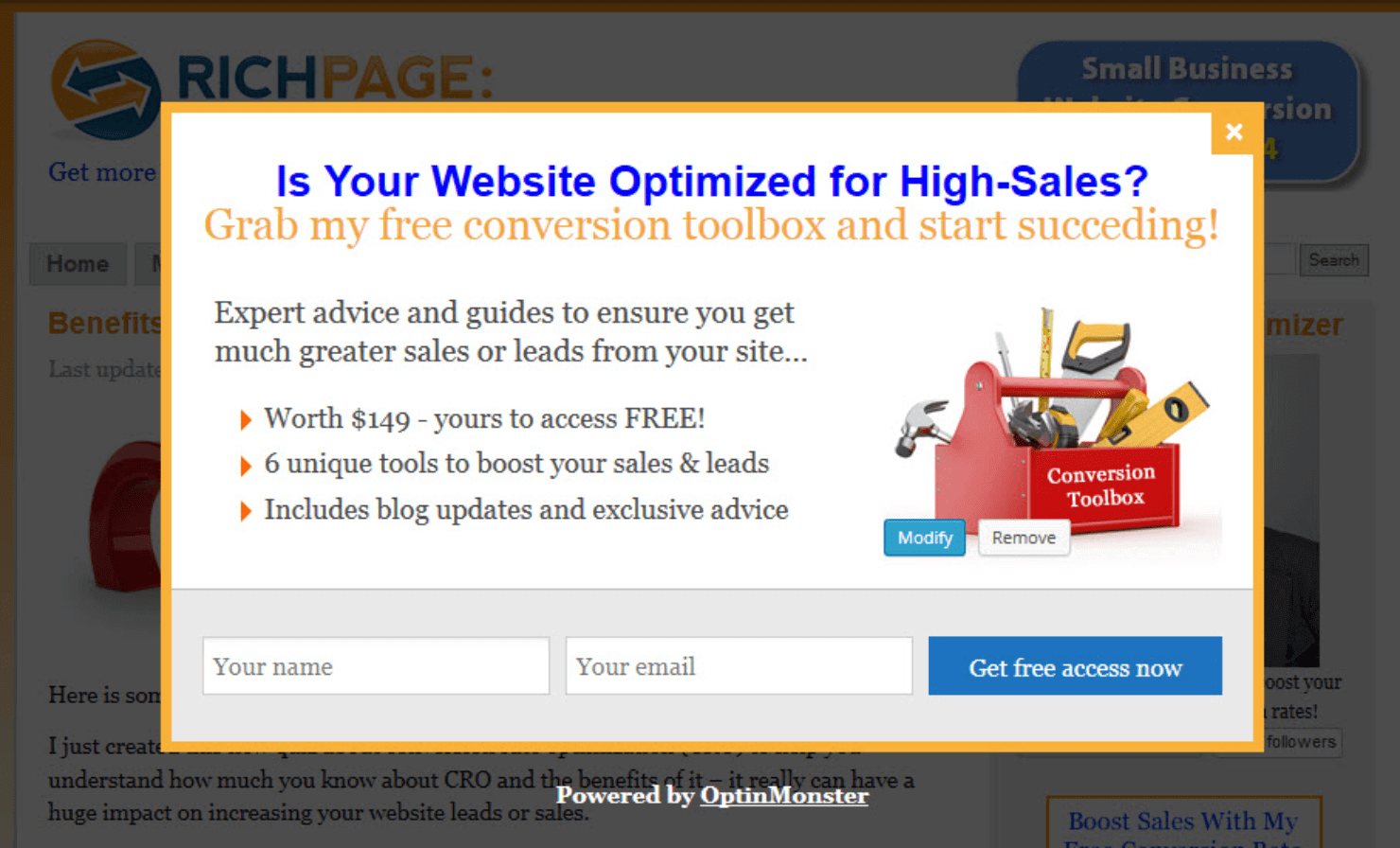
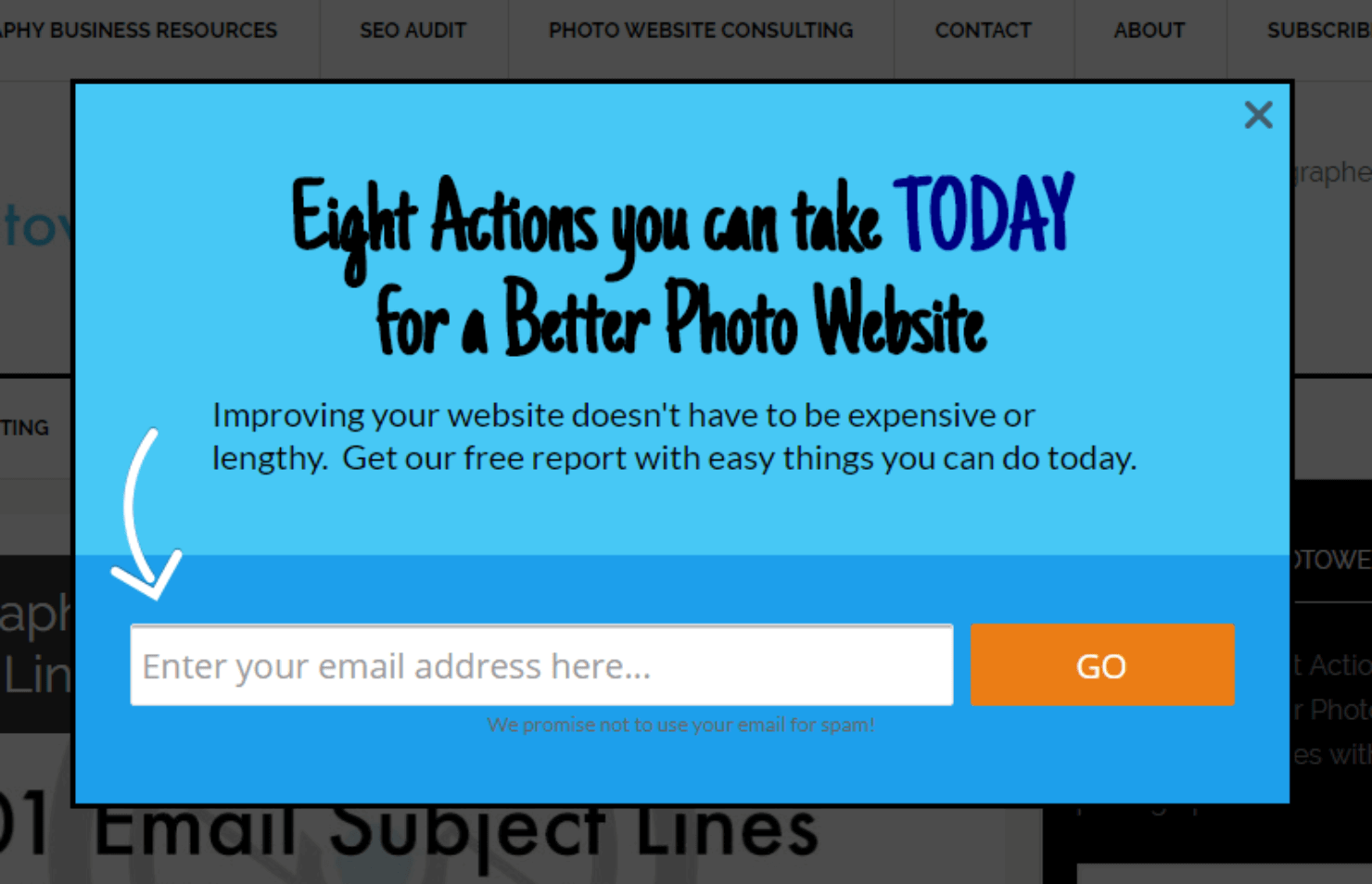
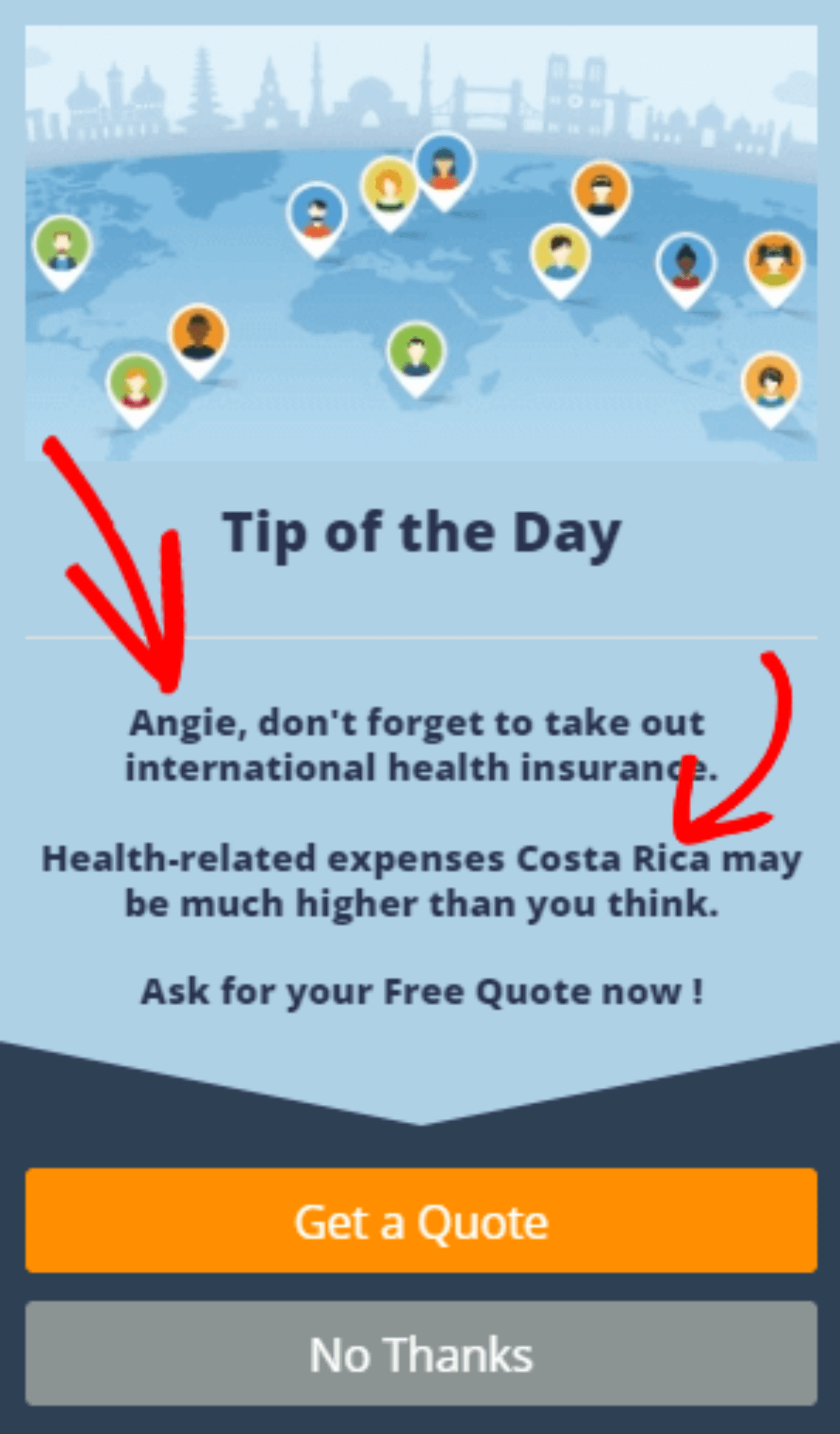
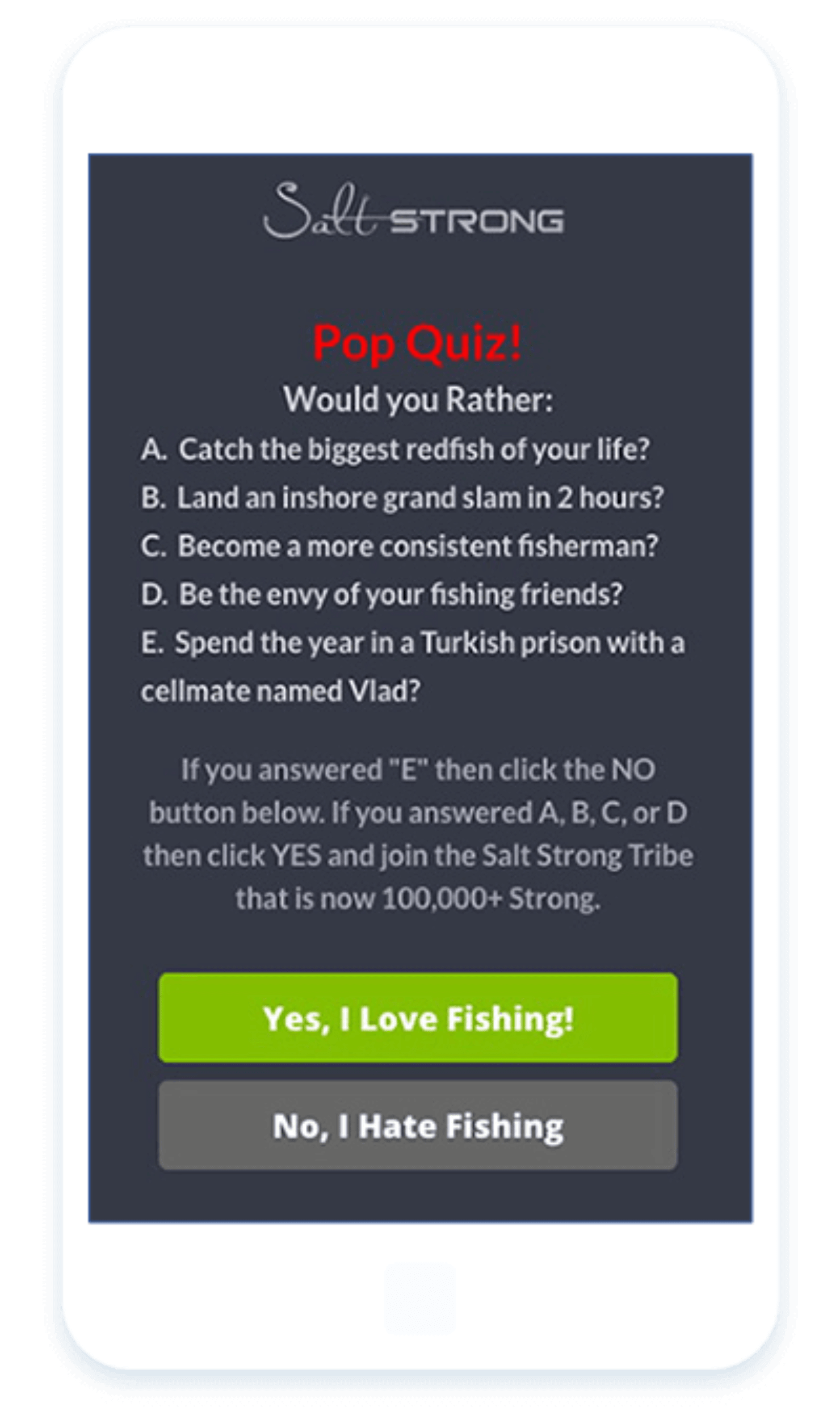
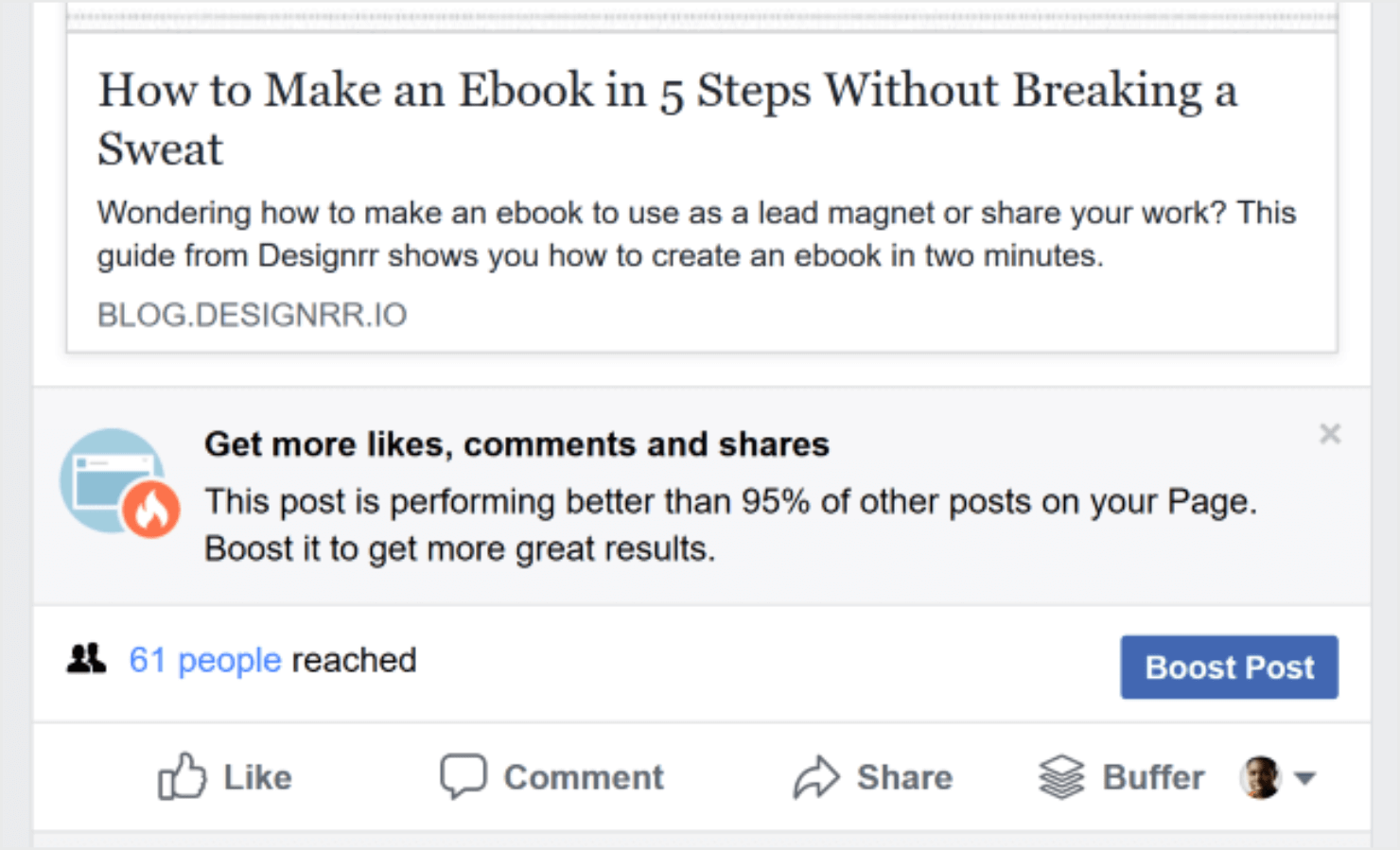
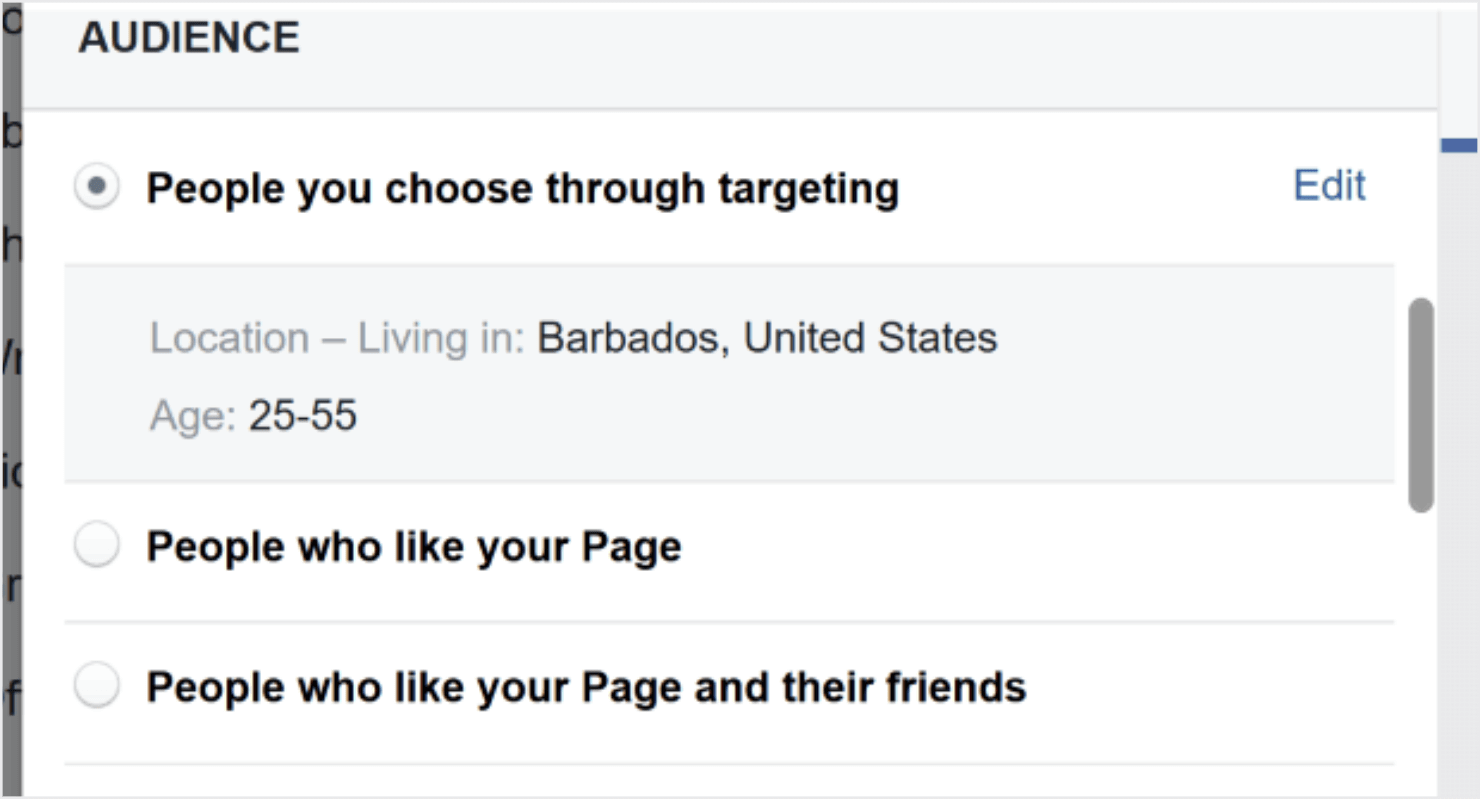
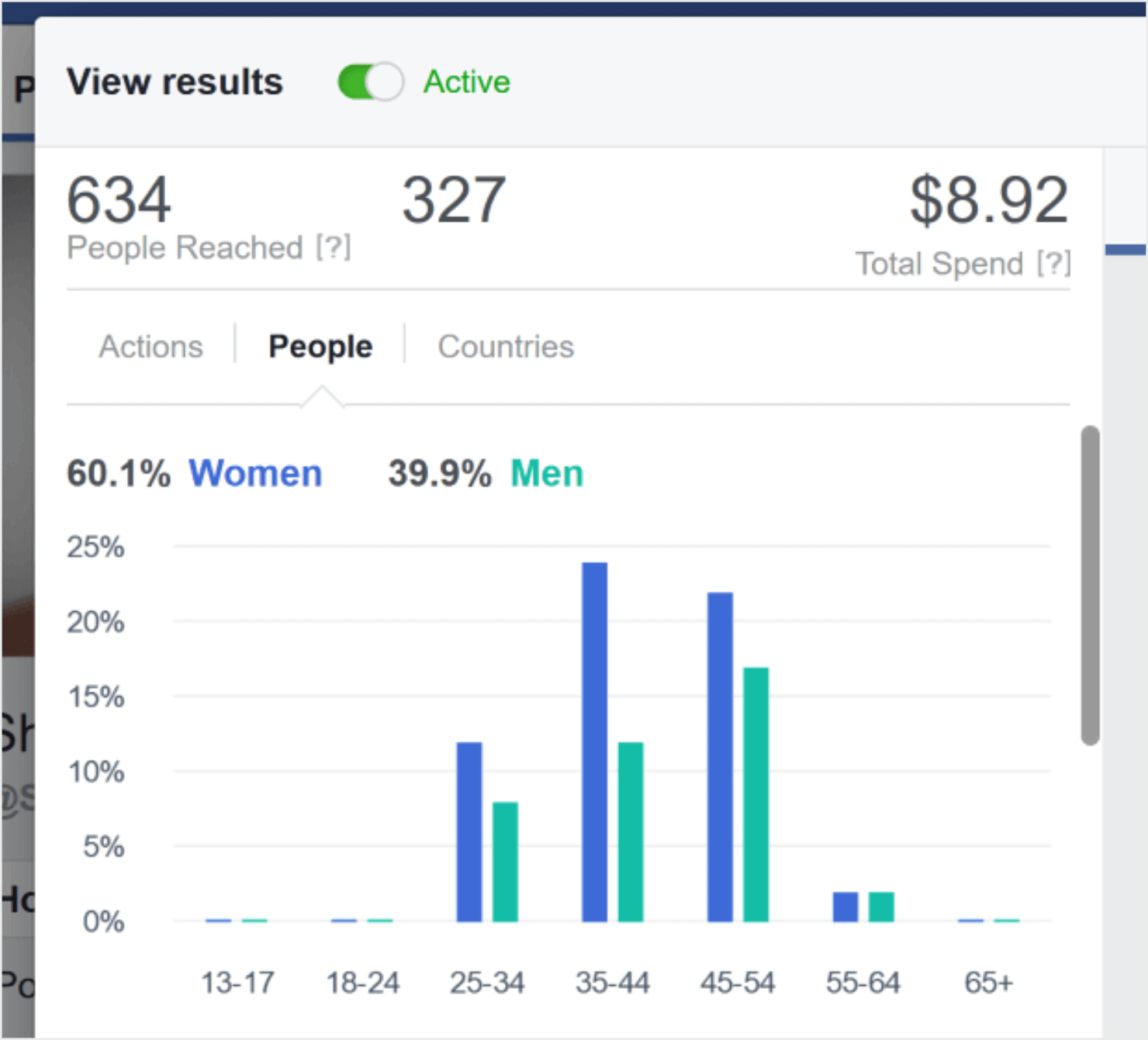


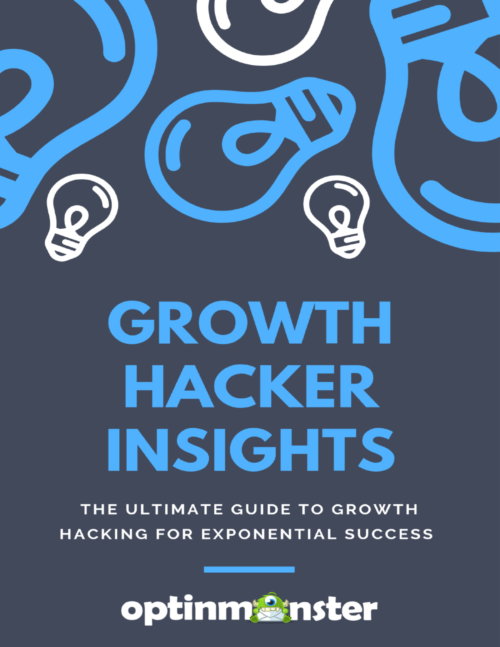
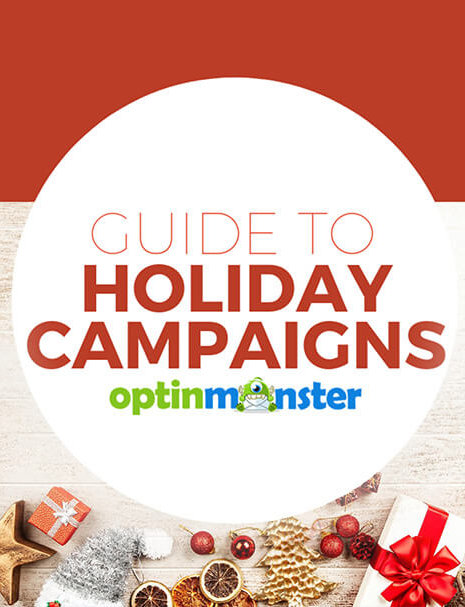
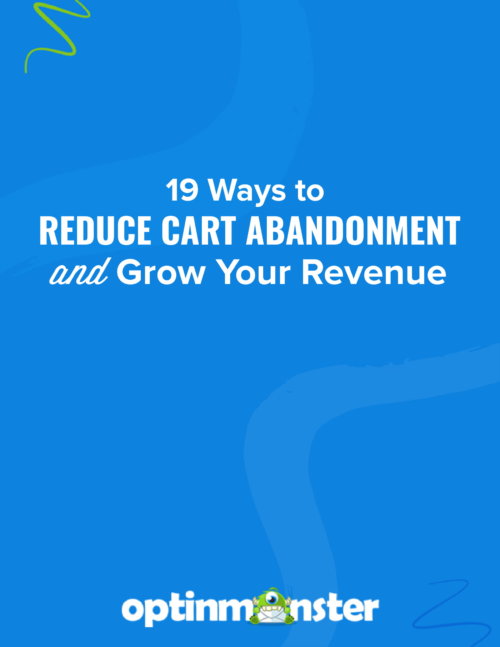



Add a Comment